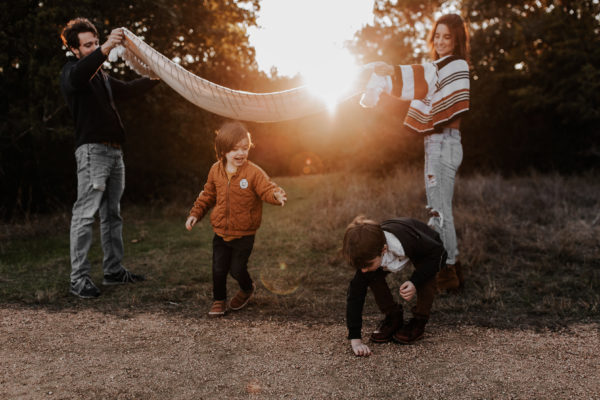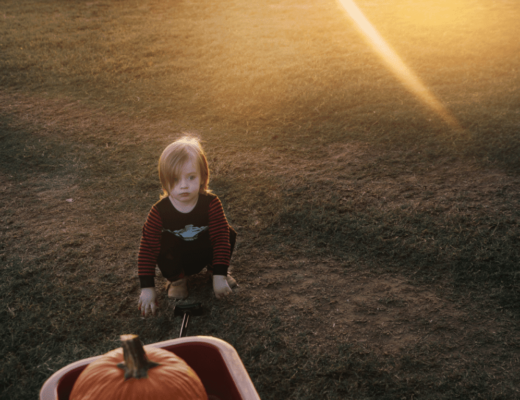How did you know you had autism?
For my entire life, I’ve watched the world through a porthole. Disconnected, alone.
Before Charlie was even two, he was diagnosed with autism. At that moment, I entered a world I thought I knew nothing about. I didn’t know that it had actually been my life too—for as long as I even had memories. The story began to reveal itself to me during a talk with my mom. She said that Charlie couldn’t be autistic because he and I were the exact same way at that age. Except I talked a lot and Charlie…didn’t. He was severely autistic, and until that point, the only people with autism I’d encountered were in movies: either geniuses or the wholly clueless, awkward, and socially inept. I was neither. And I wasn’t like Charlie either, so in my mind that placed me firmly in the not-autistic column.
Yet the next few months were wrought with an odd, nagging suspicion. My mom’s connection between Charlie and me had laid roots in my mind, eventually consuming my thoughts. One day, I was browsing the internet and an ad popped up: Signs of Autism in Adults. I got curious and tapped it. Yes, I actually clicked a banner ad. And my jaw dropped. The list of symptoms was tailor-made for me and my life. The site had an Autism Screening Tool too. It came back high risk for autism. All of a sudden, after it consumed my thoughts and I finally was starting to get some answers, you know what I did? I shrugged it off. Nah—couldn’t be true. What does an online quiz know about me? I’m not a genius, nor nonverbal, and I wasn’t completely socially inept, right? How can I have lived my entire life until then with a disability and not known?
List of autism signs in adults I wrote a few years ago
Getting an official autism diagnosis
As it turned out, autism explained so many of my struggles, but at the time, I still didn’t want to believe it. The difference between me and Charlie was huge. Sure, I was struggling socially, and I’m a little bit quirky, yes, but I didn’t feel like these traits of mine—parts of me that I’d lived with for as long as I could remember—could be rooted in the same condition affecting Charlie. At least that’s how I convinced myself because the idea that I too could be autistic made my head spin. It didn’t compute. But eventually, I decided I needed help to find answers.
I decided to call an autism specialist here in Austin. I bit the bullet and went through the lengthy process of a “therapeutic assessment”. I didn’t believe in self-diagnosis. How could one really know for sure? Many people have autistic traits without actually being autistic so I needed to be sure once and for all. I wanted to hear it from a professional—that I don’t have autism or that I lived my entire life, 26 years up to that point, with autism.
I went into the process with an open mind with the hope of finding these answers about myself. I really did want to know whether my struggles were caused by autism or something else. Or if there were no simple, clear answers. But that’s what I wanted. Answers. I wanted to know why I’ve always felt so different. I wanted to know why I couldn’t and still can’t do simple things that most people do without an extra thought. Going to the grocery store, getting gas, making eye contact. I wanted to know why all my relationships eventually failed and why I couldn’t handle noise and crowds. I wanted an explanation.
“You have high-functioning autism”
After two weeks of testing (filling in hundreds of bubbles, interviews with family members, cognitive tests, questionnaires, and multiple therapy sessions), the verdict came in and it came in hard. Eileen, you have high-functioning autism. Boom. I felt everything. I mean, every emotion. At the same time, one after the other, the whole range from relief to confusion, laughter and terror, and everything in between. The moment is hard to describe. I was different. I knew it! But along with some sense of relief that came, I also felt guilty. Was Charlie autistic because of me?
When I got into my car, the anxiety hit me like a brick. Now that I’m officially autistic, was the diagnosis going to affect my life? What would people think of me now? The uncertainty sent me into a tailspin.
To sum up my assessment, the specialist wrote me a long letter as part of the therapeutic assessment process. In it, she detailed all the reasons why she diagnosed me with autism. This letter provided me with so many answers—answers I had always wanted. What struck me was that unbeknownst to me, as we started talking at that very first session, she began to think I might indeed be autistic. According to her, I reported my struggles with little emotion or changes in facial expression. My eye contact was fleeting, and at times I was distracted by sounds that most people would have ignored. She also noticed me rocking back and forth as I was waiting for her to escort me from the waiting room. Additionally, the results from all the tests and questionnaires I took indicated a high likelihood of autism. In making her diagnosis, she talked to people in my life—people who knew me well, like my mom and my husband. They both filled out one of the same questionnaires I did and answered interview questions about me which confirmed her suspicions—I was indeed autistic. As she kept explaining which of my personality traits was consistent with an autism diagnosis, I felt like the puzzle in my mind was finally being solved—the pieces were falling into place.
Is it worth getting an autism diagnosis as an adult?
So is it worth it then? Getting an autism diagnosis as an adult? Well, I think so! Yes. I understand my struggles better which allows me to be kinder to myself. It helps people better understand me and my reactions and above all, it’s validating to know that there isn’t anything uniquely “wrong” with me. Well, not more than anyone else! I’m autistic. That’s why I struggle to fit in. That’s why it was so hard for me to relate to my peers. Knowing from where these issues stem helps me work around them. And if it’s not an issue to work around, it just helps me know myself better. Once I was able to work past the guilt that my little boy Charlie was autistic due in large part to me, knowing that I was on the spectrum brought me perspective, brought me clarity, and it brought me relief.
My book, All Across The Spectrum, is available here.





![[Autism] 6 things to NOT say to the parent of an autistic child 5 autism mom blog autistic child](https://theautismcafe.com/wp-content/uploads/2017/12/goldenbudaa-3-of-5-1-520x400.jpg)
1 Comment
Benjamin
2023-07-16 at 8:38 PMHi, I am Benjamin from Europe. I was born in Austria, lived 6 years in Australia when my partents moved there.
We did a lot of moving around there. Anyhow after divorce I moved back to Austria with my then born sister and mom.
And interesting observation I made since I was in a course that helped people with an Autism spectrum diagnosis to get jobs again is that interestingly alot of us seem to either have been born in another state and moved somewhere else. For example born in Bosnia, South Africa and in one case I cannot say for sure because I didnt ask but it sounded like he had lived in Germany before. Ofcourse counting me two in. This made up almost half of the attendants I met for the most time.
Eileen, do you have a Texas accent may I ask?
I figured most of the time accent of my fellow mates in the course most likely spoke with no particular accent.
And what I found interestng but might have been coincidence: Alot of us had reddish hair.
Other interesting facts: Regardless of age I found every person with an autism spectrum disorder to act or seem a bit younger than they actually were. My family would probably call it “seeming to be naive”. But I would rather call it regardless of in the 40s, 30s or 20s, a juvenile appearance or behaviour.
I definitely recomment to you because I have the Aspie diagnosis but sometimes also have the feeling Im stuck somewhere between the neurotypical and neurodivers one to take a look at “autism as context blindness” from Peter Vermeulen from Belgium. Even if its expensive =(.
It opened my eyes alot. And I must admit: When getting my diagnosis in 2018 I did not have the feeling this label “Autism spectrum disorder” fitted me. I rather felt bad about it. It was not such a wow effect as getting a diagnosis that Im allergic to trees and some foods for example. Haha.
But the theory of the context blindness, it really opened my eyes. Because talking on the other side of the spectrum (highly functioning) is less a issue than with the common Autism diagnosis.
That wondered me all the time especially regarding immigration. And dont get me wront I dont mean immigrating with ASD. I mean how it is possible for people immigrating in a new state that have to learn a language from sratch that they are seemingly less impaired than holder of an austism spectrum diagnosis …?
This never made sense for me this “contradiction”.
Because you cannot fully compensate for this with nonverbal cues.
From my point of view it all became more obvious with the aspect of getting context right …